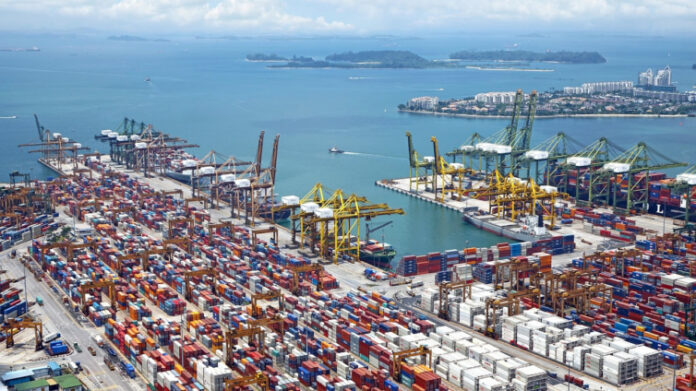By Seth KRAMPAH, Kumasi
A recent study has warned that without smarter fiscal strategies, the country risks losing vital port traffic to neighboring competitors.
From 2017 to 2021, Ghana’s ports thrived on tax relief measures such as the Benchmark Value Discount Policy (BVDP) and import duty exemptions, which helped boost cargo throughput, particularly during the economic uncertainty of the COVID-19 pandemic.
However, the subsequent abolition of the BVDP and increase in Value Added Tax (VAT) between 2022 and 2023 reversed these gains, leading to a significant drop in import traffic—which accounts for 66% of total port throughput.
At the same time, neighboring countries like Togo and Côte d’Ivoire are aggressively expanding their port infrastructure and offering more attractive tariff regimes, drawing business away from Ghana.
This shift is prompting urgent calls for strategic policy revisions to preserve Ghana’s competitiveness and economic resilience.
To counter the draw of Togo and Côte d’Ivoire, Ghana must review and reduce port fees and taxes, particularly for transit goods. Incentives targeting landlocked countries could also help restore trade flows.
These and more were contained in a research report put together by Center for Applied Research and Innovation in Supply Chain – Africa (CARISCA) and published by the Business & Financial Times recently.
“The current framework must evolve to ensure that Ghana remains a preferred destination for shipping lines and traders, while also safeguarding necessary government revenues,” the report stated.
Ghana’s port traffic, competitiveness, and tax revenue have revealed that the country’s port future hinges on balance between maintaining government tax revenues and ensuring competitive trade policies that attract importers and exporters,
The report explores the relationship between tax policies and port operations in Ghana, focusing on how changes in tax regimes affect port traffic and government revenue.
Ghana’s ports, particularly Tema and Takoradi, are crucial to the nation’s economy, serving both domestic needs and neighboring landlocked countries.
The report in its recommendation has advised policy makers to reconsider tax relief measures, introduce competitive port tariffs, and streamline port processes to reduce hidden costs as well as the country’s ability to maintain its position as a regional trade hub which centers on urgent reforms to its tax and trade policies.
It emphasizes that striking a balance between sustaining government tax revenues and creating a more favorable business climate is essential for the future of Ghana’s port operations.
Targeted tax revisions, infrastructure upgrades, and more efficient port management are key to restoring Ghana’s competitiveness in the West African maritime sector.
It further lays out a roadmap for revitalization, calling for a return to the BVDP or the introduction of a similar tax relief mechanism to help revive import volumes and re-establish Ghana’s ports as attractive entry points for global trade.
The report again calls for investment in modern port facilities and technologies. Upgrading infrastructure can reduce vessel turnaround times, improve efficiency, and position Ghanaian ports as more competitive options.
To reduce overreliance on import taxes, the report recommends expanding exports, supporting industrial free zones, and investing in value-added services like logistics, warehousing, and re-export hubs.
Additionally, the report emphasizes the importance of stronger customs enforcement through technologies like blockchain and Artificial Intelligence (AI) to reduce smuggling and underreporting, thereby stabilizing revenue without burdening legitimate trade.
“Adjusting tax policies to create a favorable business environment at the ports will be crucial in maintaining competitiveness in the region, especially with the growing threat from neighboring countries. Strategic revisions to existing tax regimes, along with infrastructural improvements and streamlined port operations, will help Ghana regain its standing as a key transit hub in West Africa,”
Traffic among neighboring countries from 2011-2021
| Year | Ghana | Togo | Cote d’Ivoire |
| 2011 | 813494 | 352695 | 766071 |
| 2012 | 882877 | 288481 | 880104 |
| 2013 | 894362 | 311470 | 983188 |
| 2014 | 793582 | 380798 | 991767 |
| 2015 | 840595 | 905700 | 927379 |
| 2016 | 942463 | 821639 | 885750 |
| 2017 | 1009755 | 1193841 | 907646 |
| 2018 | 1056785 | 1395730 | 924596 |
| 2019 | 1079247 | 1500611 | 994646 |
| 2020 | 1324504 | 1725270 | 988459 |
| 2021 | 1604724 | 1986131 | 1015624 |
Source: UNCTAD database










